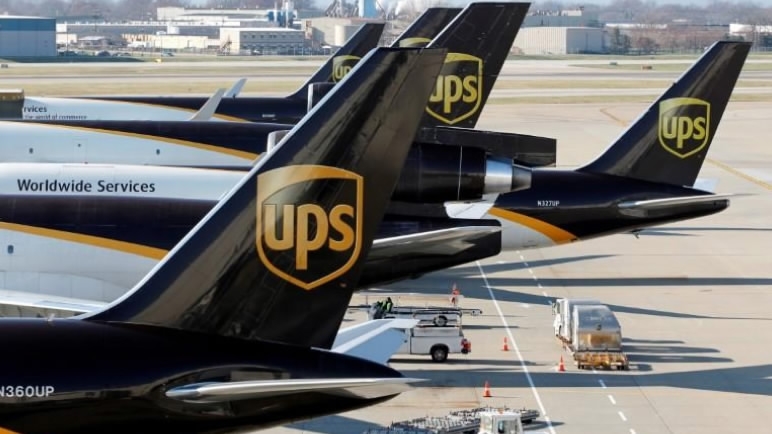
Business
19:31, 29-Sep-2017
UPS and SF Holding joint venture given go ahead
CGTN

Chinese regulators approved on Thursday an international package delivery services joint venture United Parcel Service Inc. (UPS) and Chinese express delivery company SF Holding.
The two companies, who have had an alliance since 2015, announced their plan “to collaborate on development and provision of international delivery services” back in May.
With approval from China’s Ministry of Commerce, the firms said in a statement that they will initially provide package delivery services from China to the United States, which will be expanded to other countries.

United Parcel Service air craft are being loaded with air containers full of packages bound for their final destination at the UPS Worldport All Points International Hub during the peak delivery month in Louisville, Kentucky, US on December 3, 2015. /VCG Photo
United Parcel Service air craft are being loaded with air containers full of packages bound for their final destination at the UPS Worldport All Points International Hub during the peak delivery month in Louisville, Kentucky, US on December 3, 2015. /VCG Photo
The venture will combine SF’s 13,000 service points in 331 cities in China with UPS’ global network spanning 220 countries.
“UPS has an aggressive multi-year growth plan in China,” Ross McCullough, president of UPS’ Asia Pacific unit, said in the statement. “Aligning our two networks will increase our market presence by connecting China’s consumers and manufacturers to the US and around the world.”
SF Holdings, parent company of SF Express, is often called China’s answer to UPS rival FedEx Corp, and is the dominant package delivery company within China. It also delivers to more than a dozen countries, including the United States and Japan.
“The establishment of this joint venture boosts global expansion of Chinese enterprises beyond local borders,” Alan Wong, SF group vice president, said in the press release.
UPS is the world’s largest package delivery company and has operated in China since 1988. It has more than 200 flights per week to and from its Chinese hubs.
Source(s): Reuters

SITEMAP
Copyright © 2018 CGTN. Beijing ICP prepared NO.16065310-3
Copyright © 2018 CGTN. Beijing ICP prepared NO.16065310-3